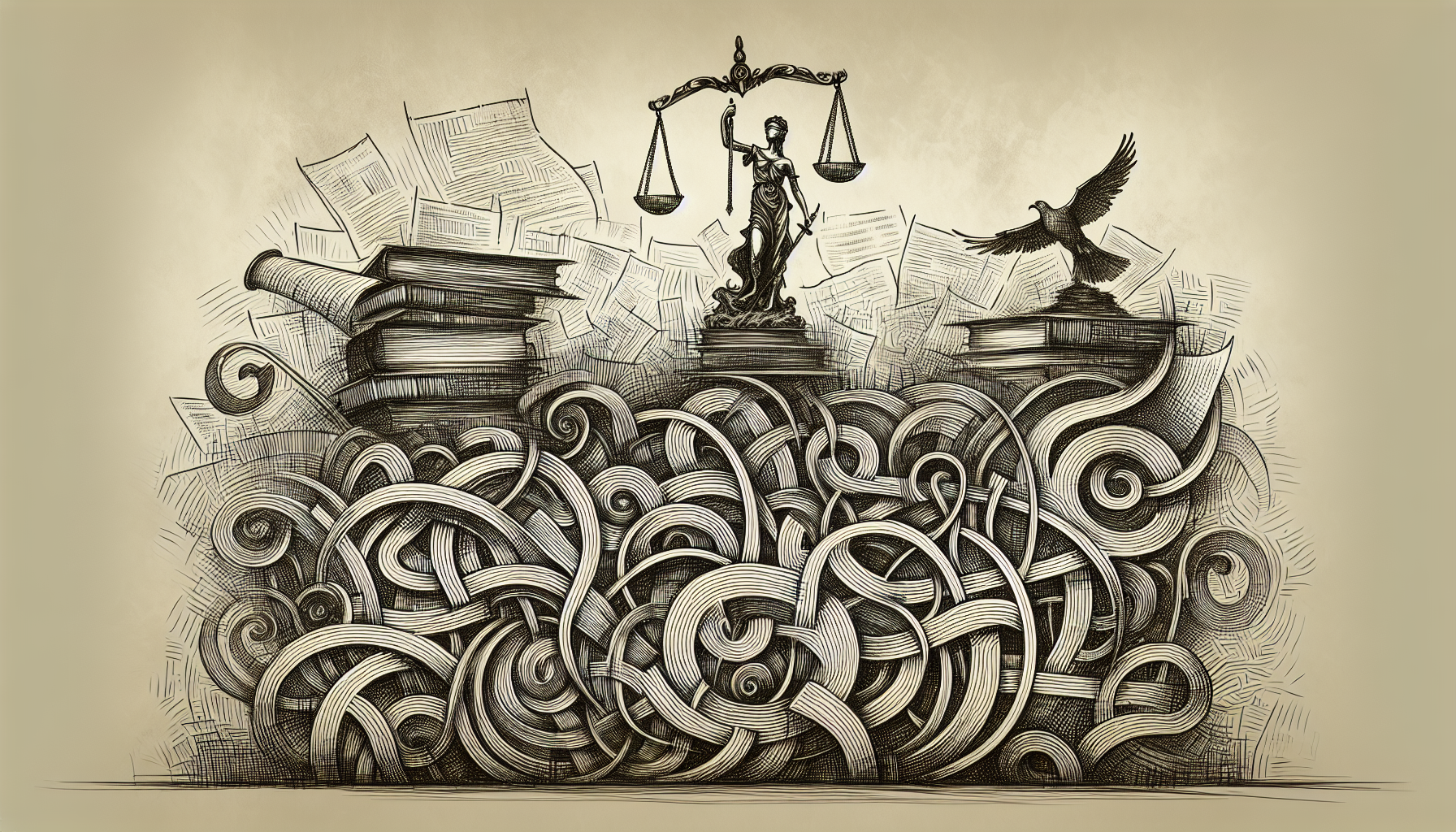
Digital Companions in Legal Services: An Overview
The integration of artificial intelligence (AI) and large language models (LLMs) into the legal field is revolutionizing the way legal professionals operate. AI-driven tools such as ChatGPT are transforming traditional practices within the industry, offering significant advantages in terms of efficiency and accuracy. One area significantly impacted is criminal defense, where the intricacies of case developments require meticulous monitoring and management.
Criminal defense workflows typically involve gathering evidence, client communications, legal research, and document preparation. The advent of ChatGPT adds a new dimension to these tasks, acting as a reliable digital companion that enhances productivity and ensures that no critical detail is overlooked. Understanding how ChatGPT can be leveraged for these complex processes is essential for paralegals and attorneys aiming to harness modern technology in their practices.
Harnessing the Power of LLMs: ChatGPT’s Capabilities
ChatGPT’s capabilities are vast and varied, benefiting paralegals significantly. Key features include:
- Document Drafting: Ability to draft legal documents, motions, and even emails with high accuracy.
- Information Retrieval: Extract and summarize information from lengthy case files and legal documents.
- Scheduling: Manage calendars and remind about important deadlines.
However, it is crucial to recognize the limitations and ethical considerations of using AI in legal work. Confidentiality and data security are paramount, requiring stringent protocols to ensure compliance with privacy laws and regulations.
As we delve into the techniques for efficient data retrieval, maintaining security and ethical standards must remain a priority.
Also read:
Smart Prompting: Nuanced Techniques for Efficient Data Retrieval
Using ChatGPT effectively involves crafting precise and nuanced prompts. Here are some techniques:
- Effective Prompts for Case Analysis:
- Specificity: “Summarize the key arguments in the defendant’s motion filed on [date].”
- Context: “Provide a brief on the witness testimony from the trial proceedings of [date].”
- Generating Summaries:
- Conciseness: “Summarize the main points of the case law in [specific case name].”
- Detail Extraction: “List the evidence presented in the discovery documents received on [date].”
- Obtaining Relevant Updates:
- Clarity: “What were the significant developments in the case of [client name] over the past week?”
- Focus: “Identify any new motions filed by the prosecution since [last review date].”
These techniques facilitate prompt and accurate retrieval of information, aiding in the efficient management of case files and legal documents. Transitioning to automating routine tasks, ChatGPT can further streamline day-to-day operations.
Also read:
Streamlining Communication: Automating Routine Tasks
ChatGPT can greatly enhance communication within a legal practice by automating routine tasks:
- Email Drafts and Client Communications: Generate standardized emails, ensuring consistent communication while saving valuable time. For instance, “Draft an email to [client name] summarizing the recent plea bargain offer.”
- Scheduling and Task Management: Using prompt-based scheduling, e.g., “Schedule a meeting with [client name] for [date and time] to discuss the new evidence.”
- Integration with Legal Software: ChatGPT can be integrated with case management software to automate data entry and update records in real time.
Moving from communication and scheduling to data organization ensures comprehensive record-keeping, crucial for legal efficiency.
Also read:
Data Organization: Maintaining Comprehensive Records
Organizing and maintaining records is another facet where ChatGPT excels, ensuring that all case-related data is systematically stored and easily accessible.
- Indexing and Categorizing Case Files: Utilize ChatGPT to automate the indexing process, making it easier to categorize case files by type, date, or relevance.
- Real-Time Updates: Prompt ChatGPT to notify you of any changes or updates in case status or new document submissions.
- Advanced Search Techniques: Implement specialized search queries for quick data retrieval, such as “Find all files related to [specific client’s name] since [year].”
Efficient data organization facilitates seamless collaboration, which is essential in a collaborative legal environment.
Also read:
Enhancing Collaborative Efforts with AI
ChatGPT also facilitates enhanced collaboration within legal teams:
- Seamless Information Sharing: Easily share summarized updates and documents with team members.
- Collaborative Document Editing: Utilize ChatGPT for real-time collaborative document editing, ensuring that everyone is on the same page.
Keeping up with AI advancements ensures continued efficiency and staying ahead in the legal tech landscape.
Also read:
Continuous Improvement: Keeping Up With AI Advancements
Regularly updating oneself with the latest developments in AI and LLMs is crucial. Continuous learning resources and training can aid legal professionals in maximizing the benefits of tools like ChatGPT.
Also read:
Conclusion: The Future of Paralegal Duties with AI
The integration of ChatGPT into paralegal duties offers immense benefits, from efficient data retrieval to enhanced collaboration. Embracing AI technologies ensures that legal processes are streamlined, ultimately leading to greater efficiency and accuracy in criminal defense practice.


